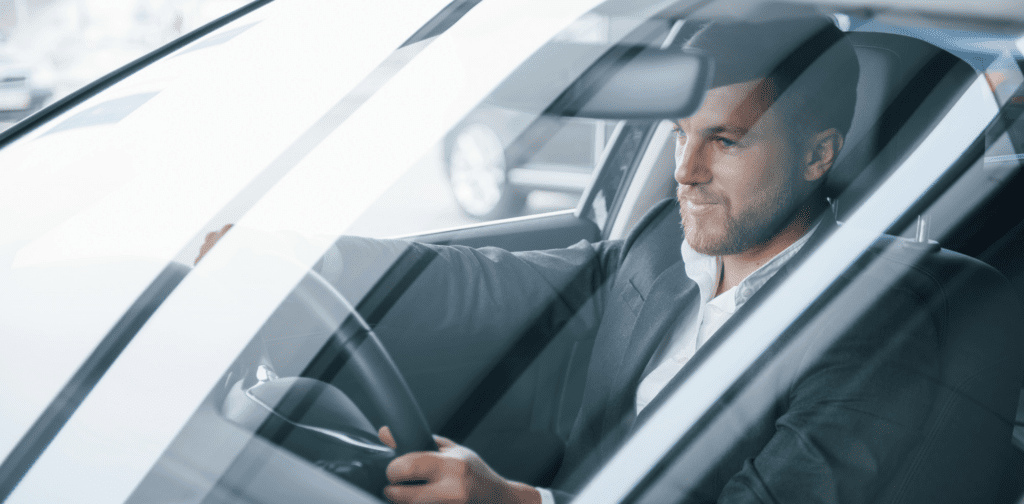
Driving offers numerous advantages like convenience, a relaxing atmosphere, and an unparalleled sense of independence. However, the experience is often marred by the presence of irresponsible drivers on the road.
New drivers soon discover that, despite extensive training and knowledge of the highway code, some individuals neglect to adhere to traffic rules.
The challenge here is that negligent driving doesn’t just endanger the driver but poses a risk to everyone on the road. Hence, even if you are cautious and responsible, you could still find yourself in a precarious situation due to another driver’s recklessness.
But it’s not all doom and gloom. Your reaction to bad drivers and their mistakes can significantly influence the outcome of these on-road encounters.
By understanding and using effective strategies to handle various driving misdemeanours, you can proactively safeguard yourself against the perils of bad driving.
We’ll guide you on manoeuvring safely around these drivers, helping ensure that your driving experience remains unspoiled by the actions of a few irresponsible individuals on the road.
What makes a bad driver?

“Bad driving” is a broad term, encompassing various negative behaviours on the road. Typically, bad drivers fall into two main groups:
- Those who deliberately ignore the rules
- Those who are unaware of their poor driving habits.
Both categories create challenges for fellow drivers.
The consciously bad drivers
Drivers in this category knowingly engage in risky behaviours, making them dangerous counterparts on the road.
Their actions range from minor yet deliberate disregard for others (like overtaking dangerously or cutting off other vehicles) to more severe offences, such as driving under the influence of drugs.
The unconsciously bad drivers
These drivers are not intentionally reckless but are often frustrating to deal with. They may not be aware of others on the road or assume other drivers can anticipate their actions.
Common behaviours include making sudden turns, stopping abruptly, and failing to use indicators, all of which contribute to a chaotic driving environment.
How to deal with a bad driver
Encountering a bad driver can trigger various emotions, from amusement to anger. While these reactions are natural, they can cloud your judgment, making it crucial to decide whether to confront or avoid the situation.

Always prioritise your safety in these scenarios.
Decide whether to address the situation
Often, it’s wise to create distance between yourself and the erratic driver, allowing them space to move away from you. If necessary, consider altering your route to avoid interaction.
Engaging with a bad driver might feel justifiable, especially if you’re certain you’re right, but confrontation on the road rarely leads to positive outcomes.
Avoid aggressive gestures or using your car to express your frustration, as this behaviour might be perceived as threatening, making you appear as the aggressor.
Decide when to address it
If you opt to address the issue, timing is crucial. Immediate action is only necessary if there’s impending danger, like an imminent crash or if someone is already injured.
In extreme situations, pull over safely and inform the police. Maintaining calm is essential; take deep breaths and calmly assess the situation before deciding on the appropriate action.
Prepare for different scenarios
-
Aggressive driving: If a driver is tailgating you, increase the distance between your vehicle and the one in front of you, which will eventually compel the aggressive driver to slow down. When it’s safe, allow them to pass.
-
Absent-minded driving: Some drivers might unintentionally engage in risky behaviours due to fatigue or inattention. If a driver forgets to turn off their indicator or doesn’t use headlights in low visibility, use your lights to signal them. If the behaviour continues, a gentle honk can serve as a warning.
-
Driving under the influence or using a mobile phone: These are serious offences. If you observe or suspect someone is engaging in these illegal activities, maintain distance and report to the police when it’s safe to do so. Ensure you’re parked with the engine off before using your phone to make a report. If possible, provide the licence plate number of the offending vehicle to the authorities, but avoid taking notes while driving, even in traffic, as it’s unsafe and illegal.
Tips on dealing with bad drivers
Being on the road involves encountering various driving styles, not all of which are safe or courteous.

Here’s how to handle bad drivers without losing your cool or endangering yourself:
-
Anticipate & Mentally Prepare: Expect to cross paths with bad drivers. Anticipating this inevitability can mitigate your emotional reaction, keeping you calmer when it happens. This mental preparation is crucial for maintaining focus and control in the face of erratic driving.
-
Use Your Horn Wisely: The horn is designed to alert others about potential dangers, not as an outlet for expressing frustration. Using it aggressively can escalate situations, possibly leading to road rage incidents. Employ the horn sparingly and only when necessary to prevent accidents.
-
Stay Focused on Your Driving: While it’s natural to notice others’ bad driving habits, avoid fixating on them to the point where your driving suffers. Keeping your attention on maintaining safe driving practices is paramount, ensuring you’re not contributing to the chaos.
-
Let It Go: After a troubling incident caused by another driver, try to release any tension or anger as soon as it’s safe to do so. Dwelling on negative encounters can affect your mood and driving performance, so shake off the experience and proceed with your journey with a positive mindset.
-
Avoid Personal Confrontations: Engaging with aggressive or dangerous drivers rarely ends well. Rather than taking matters into your own hands, prioritize your safety. If you witness extremely reckless driving, consider reporting it to the local authorities who are better equipped to handle such situations.
-
Consider a Dash Cam Investment: If you frequently observe bad driving, think about investing in a dash cam. These devices record your drives, providing valuable evidence in case of accidents or disputes. Having a dash cam can also encourage more responsible driving among those aware they’re being recorded. Ensure you understand your local laws regarding recording in public, as regulations about using dash cams can vary.
-
Practice Defensive Driving: Adopting defensive driving techniques can be your best defence against bad drivers. Stay aware of your surroundings, anticipate potential issues, and react calmly and decisively to prevent accidents.
Incorporating these strategies can not only help you deal with bad drivers more effectively but also contribute to safer, less stressful driving experiences for yourself and others on the road.


